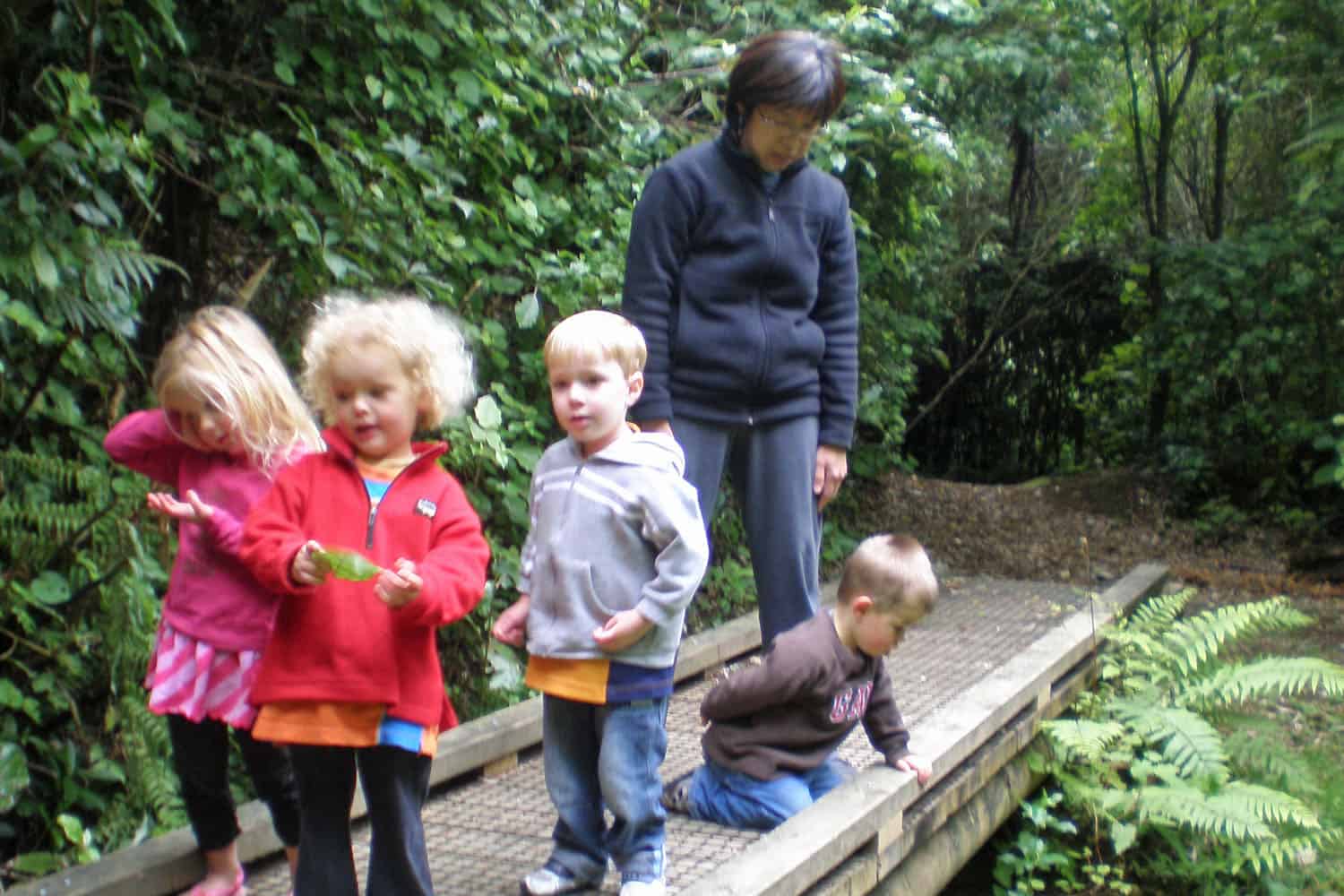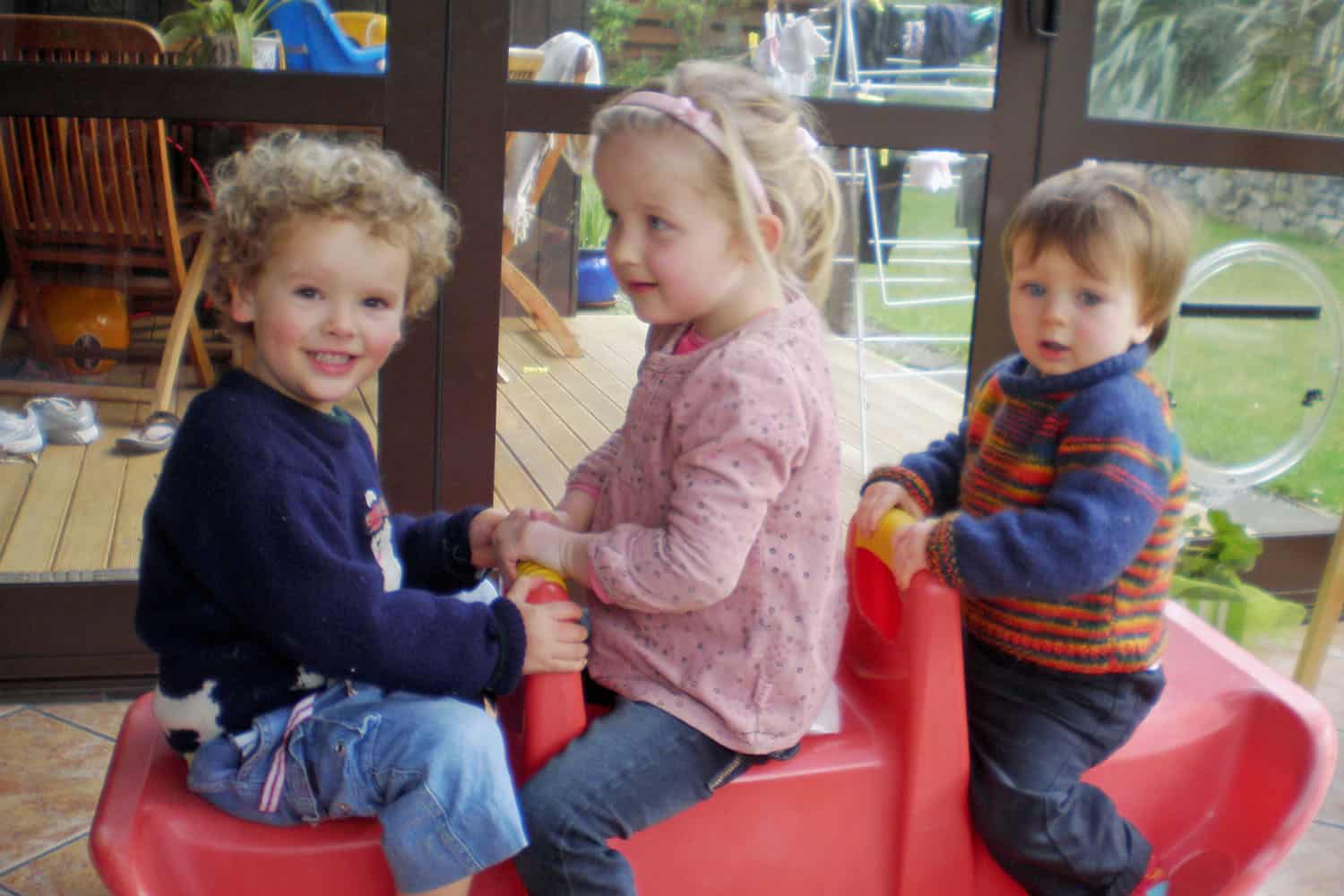Home-based.
By Dr Sarah Alexander.
Home-based childcare is also known as In-home care and as family daycare.
Home-based ECE is when someone looks after up to 4 children at a time under the age of 6 years, for payment and does so from their home or the children’s home.
If caring for more than two children from different families, then they can only legally do this if they sign up with a home-based service agency, or set up their own home-based agency service. A licence may be obtained by applying to the Ministry of Education to become licensed and receive government funding.
The home-based agency oversees the home-based caregivers (also called ‘educators’), visiting once a month and hopefully more often.
Some home-based agencies lend equipment and toys and may run a playgroup that caregivers are encouraged to attend for support and for children to socialise with other children.
Questions to Ask When Making Your Choice
Before signing up with an agency check what support they provide to caregivers, for instance:
- do they provide toys and equipment?
- will they step in and care for children if your child’s caregiver has a medical appointment, a family emergency, or is sick?
- do they visit your child at least monthly to check that all is well, and to observe and provide feedback to the educator on his/her performance?
- what training and access to professional materials, memberships, books, and courses is funded by the agency for your child’s caregiver?
- how do they ensure educators/caregivers do not feel lonely and isolated – are their opportunities for example to network with other adults at a local playgroup?
Also you may like to ask if you can talk with other parents using the caregiver before making your choice.
If the first caregiver a home-based agency introduces doesn’t suit you and your child ask to be introduced to others. It does pay to interview several caregivers and talk with several different agencies so you can compare standards, costs, expectations, and find a caregiver you and your child truely feel comfortable with.
Enquire as to the extent your child’s learning will be nurtured. What is the educational programme?
Ask about the reporting processes: how does the caregiver inform you about what your child is learning and has been taught?
Ask also about planning and assessment, how does the caregiver identify what your child’s learning needs are, work to meet these needs, and assess learning that has taken place to identify the next steps for your child’s learning.
What You Also Should Be Aware Of
The home-based service agency receives a government funding grant per child for up to 6 hours a day in return for placing children/families and overseeing the standard of the work performed by the caregiver. So if you find your caregiver is not supported well by the agency or there are problems, then the agency is not doing its job well and you may complain directly to it and the Ministry of Education.
Ideally if you go through a licensed home-based service agency you want the agency to be dealing with the money side, so that you pay the agency and the agency passes this money on to the caregiver. A nanny in the family’s own home on the other hand may be paid an hourly, weekly or salary rate by the family. The agency may provide a payroll/PAYE service but will usually charge for this service. Au pairs are usually provided with board and meals and a small wage in exchange for childcare duties
Home-based care, whether in the family home or in the caregiver’s home, differs from an early childhood centre in respects of:
- The setting is not a preschool building or designed only for the care and education of young children; it is also a home for other adults and children.
- The child is cared for by one adult all of the time and not by a group of adults as would happen in an early childhood centre.
- There is more flexibility to have spontaneous outings and excursions in the local community e.g. visits to parks, playgroups, music groups, library, shopping, preschool gym, and swimming.
Care in a caregiver’s home also differs from an early childhood centre in respect of:
- Greater likelihood of regular contact with the caregiver’s partner and other family members that may include teenage children, and visiting adult friends, whereas in a centre setting children primarily have contact only with their peers and teachers.
- The amount of time a child may spend on the road being taken to playgroups, music groups, playgrounds and parks, as well as being taken to the caregiver’s own personal activities when she is for instance dropping her own children off at school or to their after-school activities, visiting her own friends and parents, shopping for her own family, going to the doctors, etc.
What Kind of Parent are You Likely to Be to Choose Home-Based?
You are likely to:
- be seeking help with childcare for an infant or child under 3 years – home-based care seems to be a particularly popular choice for parents with very young children.
- want personalised care and attention for your child and for your child to be cared for within a small (not large) group of children
- a parent who would prefer to have the agency keep a check on the caregiver’s competency and spot and deal with any issues that arise.
- Be an at-home parent without other adult family members or friends available to give you a regular break from caring for your child.
If you choose a home-based service in your own home (i.e. a nanny) you are likely to:
- want to be be able to leave straight for work in the morning and not drop your child off anywhere.
- work out of town on a regular basis, or work irregular hours, and require live in support.
- work long hours and appreciate help with other childcare tasks such as bathing children, doing the washing, cooking etc.
- have more than one child and/or school-aged children as well and find it cheaper to have your children cared for together at home rather than at a centre or in different arrangements.
 Children Who Are Likely to Thrive in a Home-Based Service
Children Who Are Likely to Thrive in a Home-Based Service
1. Very young children who thrive on personalised attention if the caregiver is the kind of person who will give this to them.
2. Children with special needs because of the lower number of children in a home-based arrangement.
3. Children who are gifted if it means that the child is more likely to be taken out often to museums, art-galleries, different workplaces etc and to be extended in thinking through community involvements.
4. Children who have allergies or are likely to get sick very easily as they can continue to be cared for at home and don’t have to face going somewhere else or being with other children when they are not feeling well.
Problems and Difficulties You May, or May Not, Encounter
You are more likely to choose a nanny in your own home over care in a caregiver’s home if you want to minimise the amount of time your child spends on the road. However, the flip side is a risk that the nanny may be the kind of person who becomes depressed or unhappy about working from home and having little or no contact with other adults during the day and may take it out on your child.
A problem with going to a caregiver’s home is that there is no limit on the time that a child may spend in the caregiver’s vehicle as the caregiver also has responsibility for the care of other children as well as their own. The caregiver may also choose to visit her/his friends and family living elsewhere or carry out personal trips, such as to the hairdressers to get her hair cut. It can be argued that time spent in the car is educational, but only when its used for educational purposes. Too much time spent restrained in a car seat is not good for a young child who needs movement, and there is an added element of risk of injury through vehicle crashes.
Boredom – if your child is the eldest in the group at someone else’s home and the educator is busy caring for the needs of very young children your child may have less stimulating activities than if at a centre or home-based arrangement with similar aged children.
Parent involvement – as a parent you are likely to feel more comfortable to stay in your own home and interact with your child. A caregiver’s home is a caregiver’s home, and while you are very likely to form a friendship with your child’s caregiver, at the end of the day it is the caregiver’s home, and the caregiver’s family have their own routines and needs too.
When your caregiver is sick or decides on an unscheduled holiday you are stuck! That is unless, the agency provides you with a place in another home-based arrangement, a reliever, or one of their own staff step in and care for your child. Some agencies do this and they should at no extra cost to you because it is their job to provide a service and they should have back-up plans to ensure ongoing childcare provision.
How Popular is Home-Based?
Popularity is not an indicator of quality. Some services are much better at marketing themselves than others, and government policy funding incentives have a huge influence on the growth and decline of different services. Beyond the advertising and gloss and the promises of what is offered by a service, look at what the actual quality is for your child and in terms of what you really need.
It’s quite common for parents with children enrolled with a home-based provider to also have their toddler or young child enrolled at a playcentre or other sessional (part-day) early childhood service. There are two reasons for this. One reason is that parents with a nanny may want their child to participate in the local playcentre and meet local children and families; and the nanny acting as a parent is in a good position to fully participate as a parent would in the local playcentre. A second reason why parents might use both home-based care/education and drop-off kindergarten or daycare education is so that their child gets some large group pre-school experience before starting school.
How to Find and Compare Home-based Agencies
Go to the home-based services directory to search/ find home-based services in your area.
The key thing to remember is that in home-based care the most important thing to consider is if the person is safe and good to leave your child with. And, don’t be taken in by advertising and brochures put out by the agency – make sure you do your own home-work before choosing.









